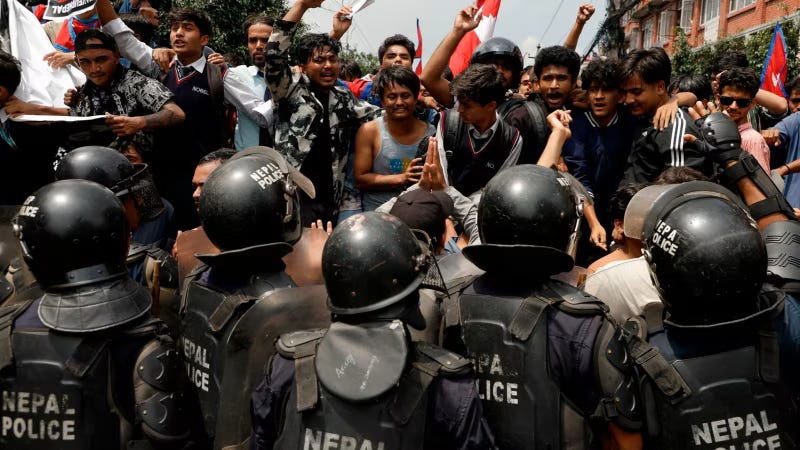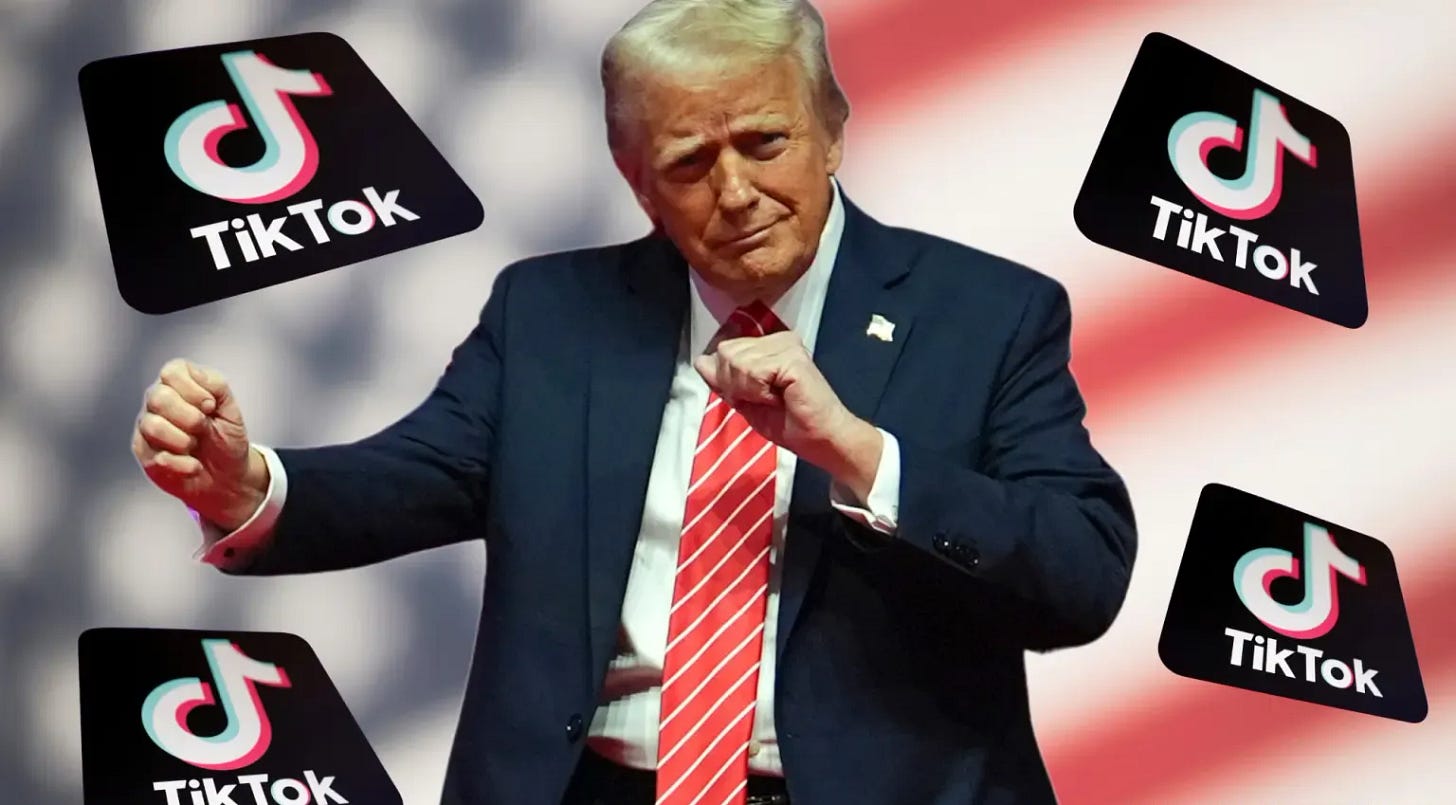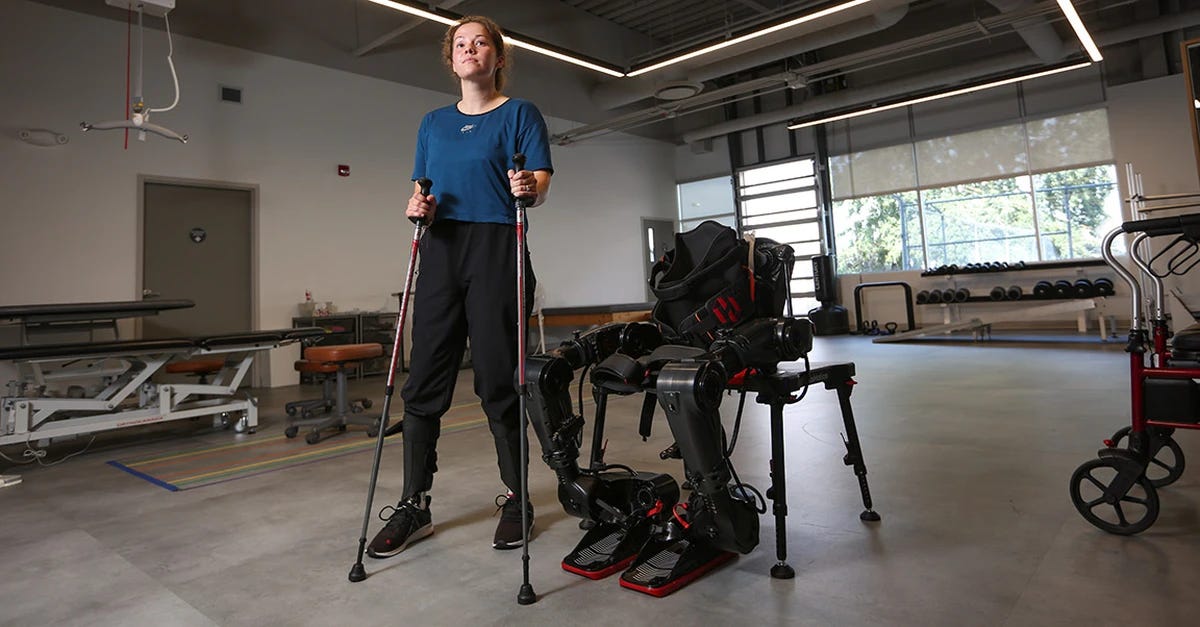Good morning, it’s Tuesday, September 16th. In today’s news, the Liberal government funnels Canadian dollars into CCP shipyards, universities turn into cheering sections for political violence, Poilievre and Carney trade shallow quips and false stats in parliament, the FBI confirms a DNA match in the Kirk assassination, and much more.
First time reading the daily blend? Sign up here.
Liberal Government Funds Chinese Communist Party in $1 billion BC Ferries Scandal
The decision by BC Ferries to award a contract for four new vessels to China’s state-owned Weihai Shipyards has grown into a billion-dollar scandal that strikes at the heart of Canada’s national interest. What was presented as a provincial procurement choice has revealed deep federal involvement and exposed once again how Canadian leaders put foreign powers ahead of their own people.
In June, BC Ferries announced the deal. No Canadian shipyards submitted bids, raising questions about why domestic industry was effectively sidelined. Finance Minister Chrystia Freeland moved quickly to distance Ottawa, insisting the federal government had no role. She even wrote to her B.C. counterpart demanding assurances that federal dollars wouldn’t fund the purchase.
Yet internal emails tell a very different story. Senior staff in both Freeland’s office and the Prime Minister’s Office knew a $1 billion loan from the Canada Infrastructure Bank (CIB) was tied to the project. One aide admitted the contract was “likely not viable without our loan.” Others worried that cancelling the loan would send the wrong “signal” to Beijing, undermining efforts to “re-establish economic ties and remove tariffs.”
What emerges is not a picture of strong leadership, but of a government more focused on smoothing relations with the Chinese Communist Party than supporting Canadian workers. Behind closed doors, Ottawa was actively enabling a deal that pumped Canadian taxpayer dollars into a regime openly hostile to our national security.
As we outlined in our documentary The Silent Dragon: How China Conquered North America Without Firing a Shot, the CCP represents the single greatest threat to Canada’s sovereignty. It is a regime tied to fentanyl flooding our streets, organized crime networks operating across our borders, and a campaign of influence operations that undermine our institutions. Against that backdrop, watching our leaders bankroll Chinese state-owned companies while Canadian shipbuilders are left on the sidelines is more than negligence—it is a betrayal of Canada’s long-term security.
This scandal is not just about ferries. It’s about whether our governments—local, provincial, and national—will continue to hollow out our industries and compromise our sovereignty in exchange for short-term political convenience. The $1 billion loan was more than financial support; it was a signal to Beijing that Canada will subsidize its rise, even at our own expense.
Canadians deserve to know who their government is really working for—our nation, or a foreign power?
Canadian Universities Have Become Cheering Sections for Political Violence
When US commentator Charlie Kirk was assassinated at a university while engaging in debate, the shock should have rippled across academia. Instead, a troubling pattern emerged: faculty members cheered, mocked, or justified the violence, posting incendiary comments online with little fear of consequence. Screenshots circulated showing University of Victoria’s Melia Bose writing “GOOD RIDDANCE. The ‘woke radical left’ finally sent someone with good aim,” while University of Calgary associate professor Tawab Hlimi posted “bullseye” and “Charlie Kirk no longer exists” alongside a laughing emoji. At the University of Toronto, political science professor Ruth Marshall wrote, “Shooting is honestly too good for so many of you fascist c–ts.”
These are not isolated lapses in judgment. Canadian universities have repeatedly produced faculty who publicly endorse political violence or extremist causes. In 2023, professors and campus organizations justified or celebrated Hamas attacks, while some faculty openly called for arming militant groups. These actions have often gone unpunished; those responsible continue to teach, publish, and speak at conferences, legitimized by institutional silence or minimal disciplinary measures.
Students bear the cost. Nearly 40 percent of moderate or conservative Canadian students report concealing their beliefs to avoid sanctions from professors or administrators, creating a culture of fear and self-censorship. Liberals and left-leaning students, by contrast, operate with virtual impunity, emboldened to voice extreme opinions without consequence. The imbalance is a symptom of a deeper problem: institutions captured by ideological orthodoxy, where academic freedom protects only certain viewpoints, and accountability is selectively enforced.
The structural failure extends beyond campuses. Government authorities have similarly hesitated to act against recognized terrorist entities operating domestically. Groups like Samidoun continue to function as registered non-profits months after being officially designated terrorist organizations, illustrating a broader inability—or unwillingness—to confront extremism when it intersects with political or cultural narratives.
Meaningful change requires reforming the institutions themselves—universities must enforce accountability without fear or favour, and government oversight must ensure that extremist influence doesn’t thrive under the guise of academic freedom. The window for action is narrow. If these systems fail to adapt now, the normalization of extremism and ideological suppression will be cemented, leaving a generation of students and citizens trapped in an environment hostile to reason, debate, and democratic norms.
Poilievre vs. Carney: The Fast Food Politics of Question Period
The first face-to-face clash between Pierre Poilievre and Mark Carney was as revealing as it was frustrating. On style, there was no contest. Poilievre was sharper, quicker, and more charismatic. His barbs landed with ease — the “free beer tomorrow” quip about Liberal promises will live far longer online than anything Carney said in reply. In terms of soundbites and stage presence, Poilievre dominated the chamber.
But style is not substance. His critiques, while witty, did not drill into the deeper rot hollowing out this country. Canada is facing an affordability crisis, a justice system unable to deliver accountability, law enforcement collapsing under the weight of violent crime and gang activity, and immigration levels that have strained housing, services, and national cohesion. In this moment, one-liners are not enough. This is the time to hammer away relentlessly at the “why” behind the chaos — why Canadians are paying more in taxes than they do on food, shelter, and clothing combined, why crime is spiralling in our cities, why borders remain porous, and why government after government shrugs while Canadians fall further behind. The Opposition must force the government into uncomfortable answers, not just settle for applause lines.
Carney, meanwhile, stumbled through his replies. He listed off talking points about tax cuts, GST tweaks, and billions in “new investments,” but much of it was over-spun or misleading. The so-called “largest tax cut ever” doesn’t compare cleanly to past reductions like Harper’s GST cuts. The “cut to the GST” is a narrowly targeted housing measure, not a broad tax relief. His boast about eliminating “all internal trade barriers” is only true on the federal side — provincial restrictions remain untouched. Even his claim of doubling military investment looks exaggerated when you compare it to the actual numbers.
On top of that, Carney simply lacks the oratory skill Poilievre commands. He is a technocrat by nature, a man more comfortable in central bank briefing rooms than on the floor of the Commons. Where Poilievre’s lines travel, Carney’s fall flat.
The result is a Question Period that feels more like fast food than a meal — quick, salty, instantly consumable, but not nourishing. In the digital age, it produces clips for social media rather than clarity for citizens. And while it may entertain, it does little to confront the crises that are slowly tearing the country apart. Source.
FBI Confirms DNA Match in Kirk Assassination, Details Note and Ideological Motive
FBI Director Kash Patel confirmed that DNA evidence from a towel wrapped around the firearm and a screwdriver matches Tyler Robinson, the suspect in the September 10th assassination of Charlie Kirk at Utah Valley University. Patel revealed that Robinson left a note and text messages expressing intent to kill Kirk, including the phrases “opportunity to take out” and “I’m going to take it.” Authorities say Robinson was motivated by left-wing ideology, and bullet casings recovered at the scene contained anti-fascist engravings.
The FBI is also investigating possible accomplices in Charlie Kirk’s assassination, including individuals who may have aided, abetted, or had prior knowledge through online communities such as Discord or Reddit. Robinson’s romantic partner, a transgender individual who was also his roommate, is cooperating with investigators. More
The Gen Z Revolution Spreading in Asia
A youth-led uprising is sweeping Asia, with Nepal offering the latest dramatic example. In Kathmandu, young protesters torched government buildings, smashed politicians’ homes, and scrawled messages on the charred parliament walls: “From now, only Gen Z youth will be in this place. Corrupt leaders will be sent out of the country.” The unrest, sparked by a social media ban, tapped into deeper frustrations over corruption, inequality, and entrenched elites flaunting wealth online.
After two days of protests, Prime Minister KP Sharma Oli resigned, with 51 dead and nearly 1,400 injured. Nepal’s Gen Z, like their counterparts in Sri Lanka, Bangladesh, and Indonesia, is challenging ageing political elites and demanding accountability. Youth unemployment, informal work, and unequal opportunities fuel the anger, while social media spreads both outrage and organization.
As young people across Asia watch and learn from one another, the Gen Z revolution shows little sign of slowing, signaling a new era in which entrenched leaders are no longer untouchable. The revolution is not just political—it is generational, digital, and relentless, fueled by inequality, corruption, and the refusal of a young population to remain silent. Asia’s Gen Z is rising, and its message is clear: the old order will no longer go unchallenged. More
Survey: Young Canadians Reject Peacekeeping Role in Ukraine and Gaza - More
Bonnie Crombie to Step Down as Ontario Liberal Party Leader - More
Starlink Suffers Brief Global Outage, Disrupting Ukraine's Frontline Communications - More
Democratic New York Governor Endorses "Communist" Zohran Mamdani for NYC Mayor - More
Australia and Papua New Guinea to Sign Defence Pact as China’s Influence Grows - More
Bali Battles Worst Floods in More Than a Decade - At least 17 dead as torrential downpours trigger landslides, while heavy rain lashes India, Pakistan and Australia. More
US Says 'Framework' for TikTok Ownership Deal Agreed with China
The US Treasury Secretary announced that Washington and China have reached a “framework” deal on TikTok’s American operations, paving the way for US ownership. President Trump said the talks went well, while China confirmed the framework but stressed no deal would harm Chinese interests.
The agreement comes ahead of a looming deadline for ByteDance to sell TikTok’s US arm or face a shutdown. US officials say the deal addresses national security concerns, but experts warn key details—like control of TikTok’s algorithm and domestic data storage—remain unclear. The sale is part of broader trade negotiations and could have major implications, given TikTok’s role in AI and potential access to American user data. More
CREA: Canada Sees Most August Home Sales in Four Years - More
Google Joins the $3 Trillion Market Cap Club - Google joined Nvidia, Microsoft, and Apple in the $3 trillion club after an antitrust ruling eased breakup fears and cloud growth showed AI is paying off. More
The Rise of Superhumans: How Exoskeletons Are Rewriting Reality
For decades, sci-fi writers imagined humans merging with machines. Today, it’s happening. In Calgary, Megan Gallagher—paralyzed after a plane crash—now walks again using the XoMotion, a $250,000 exoskeleton built in B.C. Former Humboldt Bronco Ryan Straschnitzki has also stood, skated, and played hockey again thanks to the device. Meanwhile, pioneers like Neil Harbisson—the first officially recognized “cyborg”—and Canadian prosthetics researchers are pushing the boundaries of human-machine fusion.
What was once science fiction is now real: spinal cord injury survivors are regaining mobility, amputees are testing brain-controlled prosthetics, and humanoid robots are already racing against humans. The technology is imperfect, but it’s advancing fast.
This is the dawn of the “Age of Supermachinery”—a future where human minds and mechanical bodies don’t just restore life but expand what it means to be human. More
New Thermal Drones Detect Forest Wildlife 10x Faster than Humans - More
NFL, MLB, UFC, NASCAR Pay Homage to Charlie Kirk After Assassination
Most NFL teams, along with other major sports leagues, held tributes or moments of silence this past week for conservative influencer Charlie Kirk, who was assassinated on September 10th. Starting with Thursday Night Football in Green Bay, teams across the league—including the Jets, Cowboys, Chiefs, and Steelers—honored Kirk with in-stadium and on-air recognitions. The White House praised the tributes, noting that NASCAR, the UFC, and MLB teams also joined in.
Kirk, 31, founder of Turning Point USA and a close ally of President Trump, was shot while speaking at Utah Valley University. However, in the face of tragedy, the breadth of these tributes shows that Kirk’s influence reached beyond politics, reminding Americans of the values that can still unite us. More
Cincinnati Bengals’ Burrow Needs Toe Surgery—Out Three Months - More
‘Tinder Swindler’ Simon Leviev Arrested on Mysterious New Charges After Interpol Red Notice - More
Canada's Camryn Rogers Wins Her Second Straight Hammer Throw World Title - More
Conor McGregor Withdraws From Irish Presidential Election - McGregor has blamed Ireland’s electoral system for being undemocratic, but a recent Sunday Independent poll shows that only 7% of voters said they would have supported him. More
Elderly Austrian Nuns Broke Out of Their Nursing Home and Back into Their Former Convent, Defying the Diocese
Daredevil Kitesurfer Breaks Guinness World Record Flying 1,500 Feet in the Air Above the Isle of Wight Coastline
On This Day in 1920, the “Wall Street Bombing” took place when a horse-drawn wagon packed with explosives detonated on Wall Street in New York City. The blast tore through the financial district, killing 38 people and injuring 143 others. Though never officially solved, suspicion fell on anarchist and extremist groups targeting the symbols of US power and wealth. The attack remains one of the deadliest acts of terrorism on American soil in the early 20th century.



















https://www.civilianintelligencenetwork.ca/2019/03/18/blackrock-snc-canada-infrastructure-bank-meet-the-global-construction-cartel/
Hideous piece of trash. Not even human.